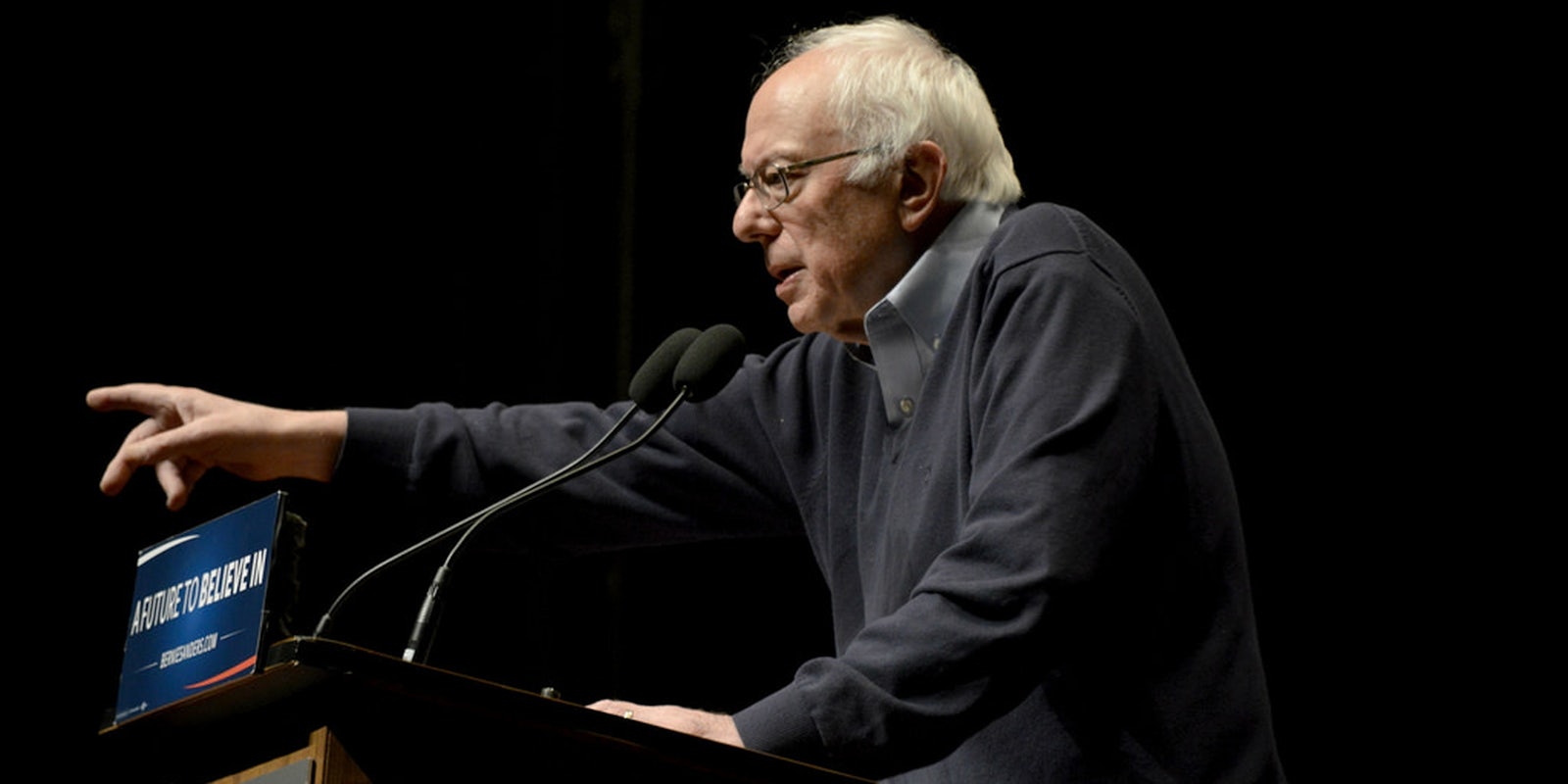Microsoft‘s free caucus-tracking app is raising hackles within Bernie Sanders’s presidential campaign, four days before Iowa voters become the first Americans to select their preferred presidential nominees.
The Washington-based technology company announced last June that it would provide the Iowa Democratic and Republican parties with “a new, mobile-enabled, cloud-based platform” to help them manage the results of the first-in-the-nation caucuses.
“Built on Microsoft technology, the new platform will feature a secure system, which will enable precincts to report their results directly by party and will ensure that only authorized Iowans are reporting results,” the company said at the time. “This announcement represents the first-of-its-kind major technology component to caucus reporting.”
But Bernie Sanders‘s campaign has its concerns about the app. In an interview with MSNBC, Pete D’Alessandro, Sanders’s Iowa state director, appeared to suggest that Microsoft’s app might somehow tip the scales in favor of former Secretary of State Hillary Clinton.
“You’d have to ask yourself why they’d want to give something like that away for free,” D’Alessandro said.
The Vermont independent senator—who has made income and wealth inequality the centerpiece of his presidential bid—frequently criticizes large corporations for attempting to exert undue influence over American politicians, and Sanders campaign aides hinted to MSNBC that the app and Microsoft’s financial support for Clinton were connected.
Sanders campaign spokespeople did not respond when asked what the campaign was suggesting about Microsoft’s motivations for producing the caucus app.
While the Iowa state parties are using the tallies from Microsoft’s app as the official results, the Sanders campaign has built its own app designed to double-check those results. “I’m always going to be more for sure on the stuff that my people had control over the entire time,” D’Alessandro told MSNBC.
Microsoft told MSNBC that its interest in the Iowa caucuses was solely focused on “providing technology and services solely to administer and facilitate a neutral, accurate, efficient reporting system for the caucuses.”
New state voting technology has long been a politically sensitive issue. In 2004, Democrats expressed concern about the partisan ties of the company making Florida’s touchscreen voting machines. Four years earlier, those machines initially produced incorrect tallies that favored George W. Bush over Al Gore.
Photo via Alex Hanson/Flickr (CC BY 2.0)


